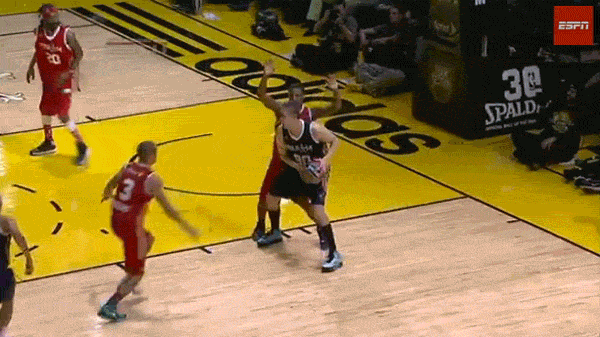
Arne Duncan raced to the
top in the N.B.A. All-Star Celebrity Basketball game last week in New Orleans. As witnessed in the video above, he made some fancy moves. Perhaps we should call him Arne Dunkin'. On a night for the celebrity record books, he
scored twenty points with eleven rebounds and six assists. He was not awarded M.V.P. by the fans, but
Kevin Hart turned the trophy over to him.
When I hear Arne Duncan's
name in the same sentence with New Orleans, it leaves a very bitter
aftertaste. I remember his words,
"The best thing that happened to the education system in New Orleans was
Hurricane Katrina."
Flagrant Foul?: As witnessed by his words, Duncan seems to favor a policy of razing,
rather than saving, public schools, thus paving the way for charters. Indeed, the D.O.E. has forbid any RTTT funds for any state that limits the number of charter schools.
Charter schools often succeed, but at the expense of high attrition rates. The playing field is not level. Charters can enforce harsh discipline,
reprimand, suspend and ultimately expel students unlike any truly public
school. They keep their "cream of
the crop," bench some and toss the rest out of the game. Pulling an old pass fake??? Rejected!!! Below, I have outlined some of the major differences between charter and public schools.
|
Charter
Schools
|
Public
Schools
|
|
Gain private and public funding, allowing for significantly more spending per pupil.
|
Rely upon public funding; separate, but not equal.
|
|
May not accommodate students with
I.E.P.s and limited English capabilities
|
Accommodate all students
|
|
May have cherry picked students who
can be weeded out when they fail to
meet expectations.
|
Must accept all students
|
|
Have a workforce that is likely to be
nonunionized; teachers may have few rights and little bargaining power
|
Have a unionized workforce.
|
|
Can discipline students in ways
unacceptable to the public-school sector (i.e., KIPP's padded cell)
|
Must adhere to strict interpretations
of students' rights and child abuse.
|
|
May make a profit
|
Do not make profits
|
|
Are not subject to the same oversight
as public schools
|
Are subject to strict oversight
|
|
Are favored by fantastically large
grants (KIPP received $50 million in federal money in 2010); they may have
CEOs who take in the big bucks.
|
Are usually strapped for funds
|
|
May co-locate, taking prime resources
away from public schools and leading to overcrowding
|
Are squeezed by charter schools
|
|
Use money to sell their schools to
potential customers via advertising
|
Do not spend money on school ads
|
|
May require students to miss a day of
school to protest in favor of charter schools
|
Cannot excuse children from school to attend
public-school rallies.
|
|
May show similar student performance to
that of public schools on standardized tests
|
May show similar student performance to
that of charter schools on standardized tests
|
No comments:
Post a Comment